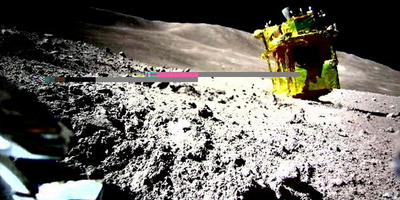Hey Alexa, play
“The Power” by Snap! Japan’s moon lander has
come back to life after it was put to sleep for over a week to save juice. The spacecraft, known as Slim (no relation to Eminem), has power again after an awkward, upside-down landing initially prevented sunlight from hitting its solar panels. It just needed to wait for a change in the sunlight’s direction.
Now that Slim is no longer sun-deprived and is back in business, the lander will analyze rocks on the lunar surface in the hopes of learning more about the origin of the Moon. “Science observations were immediately started with the multi-band spectral camera,” the Japan Aerospace Exploration Agency said in a tweet.
It’s not clear precisely how long Slim will operate, but it’s not designed to survive a lunar night – and the next one kicks off on Thursday. Either way, the spacecraft has already managed to land itself in the history books.
Slim, which stands for Smart Lander for Investigating Moon, made Japan the fifth nation to land on the Moon when it touched down on Jan. 20. Lessons learned from its mission – particularly the success of its precision landing technology – could prove useful in future exploration of the Moon.
